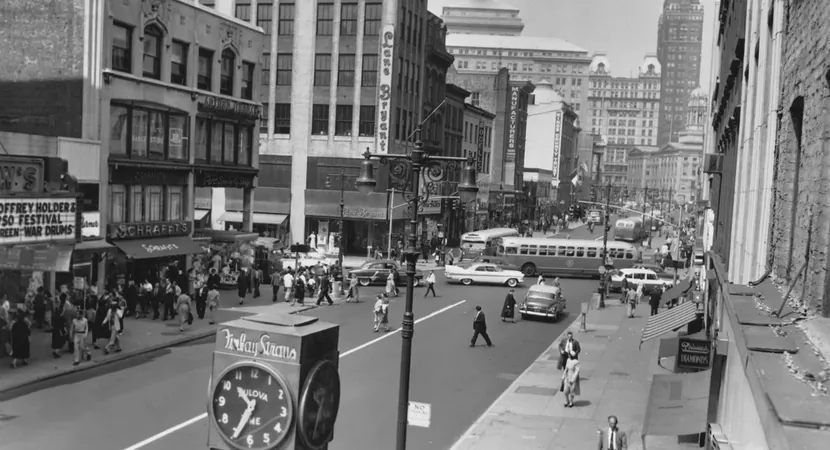
The End of an Era: Macy's Fulton Street Store in Brooklyn Shuts its Doors
2025-01-13
Author: Yan
Macy's has announced the closure of 10 stores in the New York-New Jersey area, a decision that includes its historic location on Fulton Street, marking the end of an iconic retail era in Brooklyn. This move comes as part of the company's strategic efforts to become profitable after a prolonged decline in sales.
The Fulton Street store has deep roots in the community, originally established by Abraham & Straus, which constructed the building in 1920. Macy's took over this storied location when it merged with Abraham & Straus in 1994. Over the years, the store was an integral part of what was once known as "Department Store Row," a hub for major retail giants that have since vanished from the landscape.
As the retail environment evolves dramatically with the rise of online shopping, Macy's has struggled to keep pace and adapt its traditional department store business model. Investors have long speculated that the real estate held by Macy's might be more valuable than its retail operations. Recently, Macy's sold the Brooklyn property to a group of investors interested in transforming it into an experience-driven retail space, potentially housing attractions like Legoland.
The planned closures will begin following ongoing clearance sales expected to last between eight to twelve weeks. In total, Macy’s has confirmed the shutdown of 66 stores, impacting locations across New York including Sheepshead Bay, Elmhurst, Staten Island, the Bronx, Rochester, and parts of New Jersey. However, details regarding the future of employees working in these stores remain unspecified.
Tony Spring, Macy's Chairman and CEO, expressed the company's difficult decision, stating, “Closing any store is never easy... We are closing underproductive Macy’s stores to allow us to focus our resources on locations where customers are responding positively to improved product offerings and elevated service.”
Macy's referred to its remaining 350 locations as its “go-forward” stores, anticipating it will close approximately 150 stores over a three-year timeframe. Elected representatives have voiced their sadness over the closure, highlighting the loss felt by both shoppers and employees. Councilmember Lincoln Restler lamented the store's impact on the local community, emphasizing, “It's a sad day for Brooklynites who've made countless memories here.”
Brooklyn historian Ron Schweiger reflected on the significance of the Fulton Street location, pointing out its closure completes a long trend of department store shutdowns that have plagued the area since the 1950s. He reminisced about the vibrant retail scene of the past, recalling other major department stores that once lined Fulton Street, such as E.J. Korvette, Martin's, May, and McCrory's.
As the retail landscape continues to shift, the closure of this historic Macy's location symbolizes a pivotal moment in retail history, leaving Brooklyn residents to cherish memories of their beloved department store while looking ahead to an uncertain future.



 Brasil (PT)
Brasil (PT)
 Canada (EN)
Canada (EN)
 Chile (ES)
Chile (ES)
 Česko (CS)
Česko (CS)
 대한민국 (KO)
대한민국 (KO)
 España (ES)
España (ES)
 France (FR)
France (FR)
 Hong Kong (EN)
Hong Kong (EN)
 Italia (IT)
Italia (IT)
 日本 (JA)
日本 (JA)
 Magyarország (HU)
Magyarország (HU)
 Norge (NO)
Norge (NO)
 Polska (PL)
Polska (PL)
 Schweiz (DE)
Schweiz (DE)
 Singapore (EN)
Singapore (EN)
 Sverige (SV)
Sverige (SV)
 Suomi (FI)
Suomi (FI)
 Türkiye (TR)
Türkiye (TR)
 الإمارات العربية المتحدة (AR)
الإمارات العربية المتحدة (AR)